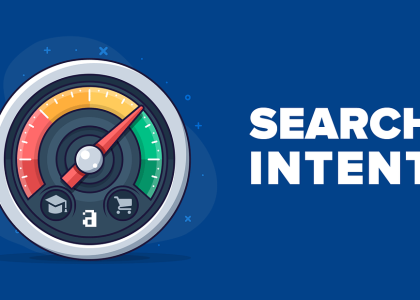The Evolution of Local SEO in 2025: Adapting to New Trends & Technologies
In the year 2025, Local SEO remains an essential strategy for businesses looking to connect with their local communities. As the digital landscape evolves, the tactics needed to stay competitive have become more sophisticated. The rise of mobile and voice search has transformed how businesses approach local optimization, making it crucial to adapt to these changes. Crafting hyper-targeted strategies is now a priority, requiring robust connections within the community and a keen understanding of local customer preferences.
Local SEO’s dynamic nature is driven by consumer demand for immediate, relevant information. This shift necessitates that businesses ensure their online presence is optimized for mobile and voice search, as these methods are increasingly prevalent. Additionally, the importance of local partnerships and community engagement cannot be overstated. Collaborations with nearby businesses and participation in local events can significantly enhance visibility and credibility.
Moreover, the integration of advanced technologies such as AI and machine learning is revolutionizing Local SEO practices. These tools allow for more personalized and efficient marketing strategies by analyzing complex datasets to provide actionable insights. Augmented reality is also emerging as a promising avenue for engaging local customers through immersive experiences. In this ever-changing landscape, staying updated with technological advancements and consumer trends is vital for maintaining a competitive edge in Local SEO.
The Transformation of Local SEO Tactics
Local SEO has evolved significantly in response to changing consumer behaviors and advancements in technology. Today’s consumers expect quick, relevant information tailored to their location, which has driven businesses to rethink their strategies. Mobile and voice search have become critical components, making it imperative for businesses to optimize their local SEO efforts to be mobile-friendly and voice-search compatible.
Search algorithms have also become more sophisticated, requiring businesses to stay informed and adapt accordingly. Local SEO now demands more than just keyword optimization; it involves creating high-quality, locally relevant content that resonates with the target audience. This includes updating business listings, managing online reviews, and ensuring that all local citations are accurate and consistent.
The use of structured data markup, or schema, has gained importance in helping search engines understand the context of local content. By incorporating schema markup, businesses can enhance their visibility in search results, especially for voice queries.
Additionally, the rise of hyper-local content and geo-targeted advertising has made it possible for businesses to deliver highly specific messages to their audience, improving engagement and conversion rates. Embracing these tactics helps businesses connect more effectively with local customers, ensuring they meet the increasing demand for immediate, location-specific information.
Cultivating Strong Relationships for SEO Achievement
Building strong local partnerships and engaging with the community are vital for enhancing visibility in search results. Local businesses can boost their Local SEO by collaborating with nearby partners and participating in community events. Customer reviews and endorsements from local influencers play a pivotal role in establishing credibility and trust, leading to improved search rankings. By fostering genuine connections, businesses can significantly amplify their local presence.
Insightful Data for Focused Marketing
Understanding local customer preferences through analytics enables businesses to develop focused marketing strategies. By closely examining location-specific data, companies can better tailor their content to match the interests and behaviors of their target audience. This personalized approach not only increases engagement but also strengthens customer loyalty, as consumers feel more understood and valued.
Analyzing data from various sources, including social media interactions, website visits, and purchase histories, provides a comprehensive view of customer preferences. This data can reveal important trends, such as peak shopping times or popular products, which businesses can use to refine their marketing efforts. For instance, if data shows that a particular neighborhood favors certain products or services, targeted promotions can be deployed to attract those customers.
Furthermore, local analytics help identify the most effective communication channels for reaching different audience segments. Some neighborhoods may respond better to email marketing, while others might prefer social media updates or SMS notifications. By aligning marketing strategies with these preferences, businesses can maximize their outreach and impact.
Additionally, advanced tools like heat maps and customer journey mapping offer deeper insights into how local customers interact with a business’s online presence. These tools can highlight areas of a website that generate the most interest or pinpoint where visitors drop off, enabling businesses to make data-driven improvements.
Incorporating this data into marketing strategies also allows for more effective allocation of resources. Businesses can prioritize high-performing channels and campaigns, ensuring they get the most return on their investment. This data-centric approach leads to more efficient marketing practices and better overall results.
Cutting-Edge Technology Influencing Local SEO
Advanced technologies such as AI and machine learning are transforming local search optimization, allowing businesses to offer highly personalized marketing strategies. These tools analyze extensive datasets to provide valuable insights into customer behavior, helping businesses make data-driven decisions. AI can predict trends, optimize ad spend, and even automate customer interactions through chatbots, streamlining the overall marketing process.
Augmented reality (AR) is another technology making waves in Local SEO. By offering immersive experiences that blend the digital and physical worlds, AR allows businesses to engage local customers in unique and memorable ways. For instance, retailers can use AR to let customers virtually try on products or visualize how items would look in their homes, enhancing the shopping experience.
Voice search is also gaining traction, making it essential for businesses to optimize their content for voice queries. This includes using natural language in their content and ensuring that information is concise and easy to access. As voice assistants become more integrated into daily life, optimizing for voice search can help businesses capture a growing segment of local searches.
Finally, the Internet of Things (IoT) is creating new opportunities for local engagement. Smart devices can gather real-time data on customer preferences and behaviors, providing businesses with actionable insights. This information can be used to create hyper-local content and targeted marketing campaigns, ensuring that messages resonate with specific audience segments.
By embracing these cutting-edge technologies, businesses can stay ahead in the competitive landscape of Local SEO, delivering more relevant and engaging experiences to their local customers.
Precision-Targeted Approaches for Business Expansion
Tailoring content to meet specific local needs is essential for business growth. Geo-targeting stands out as a highly effective strategy for engaging particular audience segments by delivering relevant messages to potential customers in specific areas. This technique allows businesses to create personalized content that speaks directly to the interests and preferences of local consumers, resulting in increased engagement and conversions.
Using geo-targeted advertising, businesses can fine-tune their campaigns to focus on precise locations, ensuring that marketing efforts reach the right people at the right time. This level of specificity not only enhances the relevance of the message but also maximizes the return on investment by targeting those most likely to respond positively.
Additionally, businesses can harness location-based social media marketing to foster community engagement. By sharing locally relevant content, participating in local events, and collaborating with community influencers, companies can build a strong local presence and cultivate customer loyalty.
Understanding and leveraging the unique characteristics of different neighborhoods and communities enable businesses to create more impactful and meaningful connections with their audience. This approach involves continuous monitoring and analysis of local trends and customer behaviors to keep marketing efforts aligned with the evolving needs of the target market.
By focusing on precision-targeted strategies, businesses can effectively expand their reach and establish a more robust local footprint.
Challenges and Prospects in Local SEO
Local SEO involves various hurdles, including keeping up with frequent algorithm updates and managing a business’s online reputation. These challenges can be daunting but also present opportunities for innovation and growth. For example, as search engines become more sophisticated, businesses must adapt by using high-quality, locally relevant content and ensuring their online information is accurate and consistent.
Another significant challenge is the increasing competition in local search results, making it essential for businesses to differentiate themselves through unique value propositions and superior customer experiences. The shift towards mobile and voice search also requires ongoing adjustments to SEO strategies, ensuring content is accessible and optimized for these platforms.
Despite these challenges, there are numerous prospects in Local SEO. Emerging technologies such as AI and augmented reality provide new ways to engage customers and enhance local search visibility. By embracing these tools, businesses can gain valuable insights into customer behavior and preferences, enabling more personalized and effective marketing strategies.
Additionally, focusing on local partnerships and community involvement can boost a business’s reputation and search rankings, creating new growth opportunities. Businesses that are proactive in addressing these challenges and leveraging new technologies will be better positioned to thrive in the evolving landscape of Local SEO.
Evaluating Success in Local SEO
Tracking the success of Local SEO initiatives involves monitoring various key performance indicators (KPIs) that provide insight into how well strategies are working. Metrics such as search engine rankings, website traffic, and conversion rates are essential for assessing effectiveness. High search rankings indicate that a business is more visible to potential customers, while increased website traffic shows that these customers are visiting the site.
Another critical metric is the click-through rate (CTR) from search results, which helps gauge how compelling the business’s listings are. Additionally, tracking the volume and sentiment of online reviews can offer a clearer picture of a business’s reputation within the local community.
Utilizing tools like Google Analytics and Google Search Console can provide valuable data on user behavior, such as time spent on the site and pages visited. Heat maps and customer journey mapping tools can further reveal how users interact with a website, highlighting areas for improvement.
Local SEO success also involves examining the engagement levels on social media platforms and the effectiveness of local partnerships and events. Monitoring these indicators helps businesses make informed adjustments to their strategies, ensuring ongoing optimization and alignment with marketing goals.
Upcoming Trends in Local SEO
As the local search landscape continues to advance, several emerging trends are poised to reshape Local SEO. The increasing prominence of video content is expected to play a crucial role, as consumers favor engaging, visual information. Businesses can leverage this trend by incorporating videos into their local listings and social media channels to attract more attention and drive higher engagement.
Zero-click searches, where users find answers directly on the search results page without clicking through to a website, are also on the rise. To adapt, businesses need to optimize for featured snippets and provide clear, concise answers to common queries.
The integration of AI-driven chatbots is another significant trend, enhancing customer service by offering instant, personalized responses. This technology can improve user experience and retention, as customers receive immediate assistance.
Lastly, the shift towards privacy-centric searches is becoming more prevalent. Consumers are increasingly concerned about their data, leading to changes in how search engines handle personal information. Businesses must ensure compliance with privacy regulations and prioritize transparency to build trust with local customers. Adapting to these trends will help businesses maintain a competitive edge in the evolving landscape of Local SEO.
Conclusion and Essential Insights
To excel in Local SEO by 2025, businesses must focus on hyper-targeted strategies and robust community engagement. Understanding and adapting to consumer behavior is critical, particularly with the rise of mobile and voice search. Advanced technologies such as AI and machine learning will be indispensable for analyzing data and creating personalized marketing campaigns. Utilizing geo-targeting and location-based marketing can help businesses connect more effectively with local audiences. Maintaining accurate and consistent online information, managing reviews, and fostering local partnerships are also essential components of a successful Local SEO strategy. By staying abreast of emerging trends and technologies, businesses can ensure they remain competitive and continue to grow within their local markets.
How Robust Connections Drives Hyper-Targeted Strategies for Business Growth
To enhance your Local SEO efforts, begin by conducting a comprehensive audit of your online presence. Ensure that all business listings are up-to-date and consistent across platforms, including Google My Business, Yelp, and local directories. High-quality, locally relevant content should be a cornerstone of your strategy, tailored to meet the needs and interests of your community.
Leverage customer reviews by encouraging satisfied clients to share their experiences online. Responding to reviews, both positive and negative, demonstrates your commitment to customer satisfaction and can boost your credibility.
Optimize your website for mobile and voice search to capture the growing number of users relying on these methods. Implement schema markup to help search engines understand your content better and improve your visibility for local searches.
Additionally, invest in geo-targeted advertising to reach specific audience segments within your locality. Collaborating with local influencers and participating in community events can further enhance your local presence and foster strong community ties.
Regularly monitor your Local SEO performance through analytics tools to identify areas for improvement and adjust your strategies accordingly. By following these actionable steps, you can significantly boost your Local SEO efforts and drive business growth.





